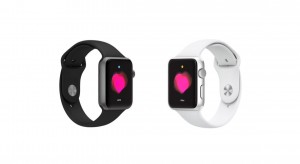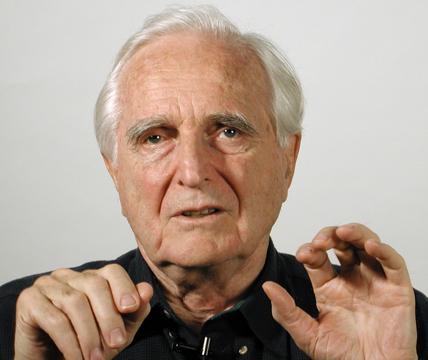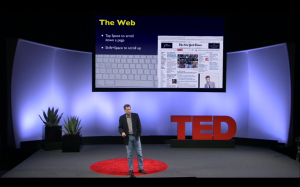 As one of the most innovative and profitable companies on the planet, Apple makes headlines when it makes announcements. This week Apple announced several important new products, each of which represents trends in a fast changing industry. Larger iPhones bridge the gap between smart phones and tablets. A mobile payments system designed to bypasses credit cards and protect privacy and security of users. And Apple’s long-awaited entry into the wearable computer market that has humbled several other companies. Technology writer Steven Levy’s thought-provoking piece for Medium suggests that the Apple watch may signal the beginning of a new, much more intimate type of interface between humans and their digital devices.
As one of the most innovative and profitable companies on the planet, Apple makes headlines when it makes announcements. This week Apple announced several important new products, each of which represents trends in a fast changing industry. Larger iPhones bridge the gap between smart phones and tablets. A mobile payments system designed to bypasses credit cards and protect privacy and security of users. And Apple’s long-awaited entry into the wearable computer market that has humbled several other companies. Technology writer Steven Levy’s thought-provoking piece for Medium suggests that the Apple watch may signal the beginning of a new, much more intimate type of interface between humans and their digital devices.
Tag: user interface
 If you’re reading this, take a moment to thank Doug Engelbart. At a time when computers were big, expensive, isolated, finicky, and terribly difficult to program and use, this unassuming genius had a vision of a digital future that was so far ahead of its time that few of his peers took it seriously. He is widely credited with inventing the mouse, but that’s just a tiny part of his grand vision. Graphical user interfaces, interactive computing, the Internet, and more, owe their existence at least in part to Engelbart’s visionary work. Thank you, Doug.
If you’re reading this, take a moment to thank Doug Engelbart. At a time when computers were big, expensive, isolated, finicky, and terribly difficult to program and use, this unassuming genius had a vision of a digital future that was so far ahead of its time that few of his peers took it seriously. He is widely credited with inventing the mouse, but that’s just a tiny part of his grand vision. Graphical user interfaces, interactive computing, the Internet, and more, owe their existence at least in part to Engelbart’s visionary work. Thank you, Doug.
http://www.nytimes.com/2013/07/04/technology/douglas-c-engelbart-inventor-of-the-computer-mouse-dies-at-88.html?pagewanted=1&_r=1&smid=tw-share
 When Apple released the iPhone, the world changed. People were carrying powerful computers in their pockets and purses. Developers released a bevy of creative apps to harness that always-available computing power. Today it’s hard to imagine a world without smart phones. Could Google Glass, the wear-on-your-face computer from Google, be the beginning of the next revolution in personal computing? This short NPR story explains how early adopters plan to use their prototype high-tech specs.
When Apple released the iPhone, the world changed. People were carrying powerful computers in their pockets and purses. Developers released a bevy of creative apps to harness that always-available computing power. Today it’s hard to imagine a world without smart phones. Could Google Glass, the wear-on-your-face computer from Google, be the beginning of the next revolution in personal computing? This short NPR story explains how early adopters plan to use their prototype high-tech specs.
npr.org/blogs/alltechconsidered/2013/04/17/177557810/Seeing-The-World-Through-Google-Colored-Glasses
Of course, not everyone views Google Glass through such rose-colored lenses. This Saturday Night Live skit mocks the idea that Google Glass can be used discreetly; other detractors question our need to become even more dependent on our technology.
mashable.com/2013/05/05/snl-google-glass-parody/
 David Pogue is one of the most prolific–and entertaining–tech writers we know. In this short TED talk, he runs through a list of tips that can save you time every day. Don’t miss it.
David Pogue is one of the most prolific–and entertaining–tech writers we know. In this short TED talk, he runs through a list of tips that can save you time every day. Don’t miss it.
Rumors of a Facebook phone have rattled around the tech world for quite a while. Today Facebook announced not a a phone, but software that can convert many Android phones into Facebook machines. Facebook is available in app form on most smart phones. But the new Facebook Home software will replace the Android home screen with a Facebook-centered home, making it possible for social networkers to keep Facebook at the center of their phone experiences. Will Android phone users click Like?
http://www.wired.com/gadgetlab/2013/04/facebook-android-home-phone/?cid=6882274
Just as the mouse made the command-line interface of early PCs seem primitive, the touch screen may soon put the mouse out of a job. But after you see this short video, you may think that even the touch screen is old-fashioned. Once again, science fiction points the way to future technology.
wired.com/gadgetlab/2013/01/leap-motion-asus
Microsoft will soon offer two new versions of its ubiquitous Windows operating system. Windows 8 is designed to replace Windows 7 as the flagship PC OS. Windows RT will run mostly on Microsoft’s new Surface and other tablet devices. This CNET article gives an overview of the two OSs and how they fit into a world where the line between tablets and laptops is blurred by all kinds of hybrid devices.
reviews.cnet.com/8301-33642_7-57536310-292/windows-8-buying-guide/
Computers generally sense human movements by seeing or feeling it. But this Microsoft research project suggests that your devices may soon be able to hear your gestures through ultrasonic waves.
mashable.com/2012/05/07/gesture-control-system-sound/
The world’s biggest social network has a nasty habit of changing its user interface often enough to confuse and anger users all around the world. The latest Facebook iteration, the Timeline. presents your history (and may threaten your privacy) in a whole new way. This Macworld article tells you what you need to know to make the Timeline work for you.
www.macworld.com/article/164999/2012/01/your_complete_guide_to_facebook_timeline.html
Will Your Phone Read Your Mind in 2016? Ask IBM
asmarterplanet.com/blog/2011/12/the-next-5-in-5-our-forecast-of-five-innovations-that-will-alter-the-landscape-within-five-years.html
As noted in Chapter 1’s Inventing the Future, predicting the future isn’t easy. But when the predictions are backed by one of the world’s biggest technology innovators, they’re worth considering. In this short, clever video, IBM describes and illustrates “5 in 5″— five technological breakthroughs that could reshape our lives within five years.